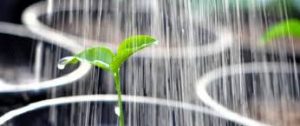Chemical-Free Fixes for your Lawn
Monday, July 31st, 2017Most of us enjoy having lawns and gardens that are pretty and lush. But the problem with achieving the kind of leafy green grass that your neighbours will envy is that it’s hard on the environment, not to mention your wallet.
We’re big spenders when it comes to our grass. It’s been said that Canadians spend at least $2-billion per year on seed, sod and chemicals, a number that’s been rising steadily, according to Planet Natural.
Bear in mind, too, that much of lawn care products help your turf in very superficial ways so you should question whether degrading the soil, polluting nearby water sources and posing health threats to humans, pets, wildlife and the birds and the bees is worth it.
Fortunately, attitudes about perfect lawns are beginning to change. Dozens of municipalities and even a few provinces including Ontario have passed laws that severely restrict pesticide use.
Let’s look at some ways to reduce our addiction to lawn chemicals:

Spot treat weeds with vinegar
Mix the vinegar with a little dish soap and Epsom salts and apply with a hand-pump sprayer. Try to be precise when applying to weeds only because the mixture can burn grass.
Corn Gluten
This non-toxic by product of corn processing can kill young weeds in days. An added benefit is that it adds nitrogen to your soil. It’s believed that after several years of use, the gluten can control up to 90 per cent of weeds. Apply in early spring.
Make the switch
Convert your lawn to a grass that is drought resistant and lower maintenance. Eco lawn grass requires little or no mowing and fertilizer.
Let clippings chill
This process is sometimes called grass-cycling as it provides a good nutrient boost of nitrogen, phosphorus and water. Clippings don’t cause thatch. To do this properly make sure the grass is three inches high and set your mower height to chop one-inch of grass. The clippings will disappear among the blades of grass. Think of the time and effort saved, not to mention the benefit to your landfill site.
Watering
Avoid over-watering your lawn because that is more damaging to your grass than under-watering. Try to water early in the morning. If you wait till the middle of the day, much is lost to evaporation. Water deeply but not frequently. Most healthy lawns need about one inch of water per week.
Clover
This is a good weed to have. It often appears when soil is low in nitrogen so the solution is to let the clover clippings fall where they may after cutting, which will fix the problem without using fertilizer.
Dandelions
These indicate you’re having nutrient problems with your soil or that your grass isn’t developing healthy roots. Get a soil test to determine your issue. Corn gluten applied early in the growing season prevents dandelions from germinating and makes your grass stronger and more weed resistant.



